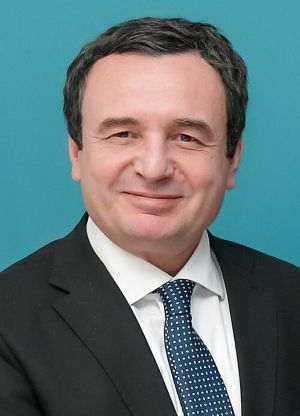The accession of our country to Schengen creates problems on a European and dilemmas on a national level. Can we or can we not live without Schengen? This is the main question which the current politicians, whether they are in the government or in the opposition, are repeatedly asking. The answers are completely opposite, depending on the political faction asking the question.
Prime Minister Victor Ponta announced that the Government does not want Germany to exert its veto right in the JHA (Justice and Home Affairs) council on the talk about the joining of Schengen. According to the Prime Minister, the Executive assumes responsibility for the change of the political strategy concerning Romania's European objectives: "We have acknowledged the decision made by the German minister of Internal Affairs, and it is therefore clear that on the Council of the JHA, if forced to, Germany will exercise its veto right. Our intention is not to get to the point where Germany exercises its veto right, because this is not what we are looking for. Our intention is to present once again at the JHA the reasons and the fulfillment of the technical criteria. If we get from Germany a clear point of view on what should be done in the future, it would be very good, I don't want to export Romanian problems to other countries and to other councils". Romania's European objectives must be treated as part of a new strategy, with a "realistic, pragmatic and dignified attitude", says Victor Ponta, who also mentioned that the Government will make a decision concerning the Schengen file: "The position of the government and of the USL is very clear, Romania's fundamental objectives of European integration remain unchanged. Obviously, we want to access the Schengen space, to access the Euro space, to be part of the banking union, of all the European developments. It is out of the question to change these objectives in any way. It is also a matter and a decision which we have taken on, of changing the strategy, because in the last few years, and not just in 2012 (...) basically nothing has been achieved since 2005.
Not even the Cooperation and Verification Mechanism has been completed, and it's not just that it wasn't completed because the government of the Social Liberal Union would come in in 2012, none of the previous governments did anything to finish it. We didn't join the Schengen space and we weren't rejected in 2011 because the USL would come in power in 2012, it was an objective which was missed by all the powers and governments. The accession to the Euro and the convergence criteria are on a positive trend, but we are far from meeting them all, - especially the real convergence criteria, to just the nominal ones".
The president of the Senate, Crin Antonescu, expresses the position of the Social Liberal Union, claiming that the accession to Schengen "was never Romania's top priority", but it remains an objective: "I completely agree with the position of the minister of foreign affairs, that if someone wants to block the debate and the making of this decision, they need to provide reasons for that. It is normal for Romania to ask for reasons. I've already said it, from our point of view, this was never Romania's top priority, but it remains an objective, because we want this, we have spent money, we have made all kinds of efforts in order to achieve that goal". Crin Antonescu also said that as to what concerns the Council of the JHA this week, the convergence points are those that Romania is convinced that it has already met some time ago all the requirements it was supposed to meet according to the aquis for Schengen and that it deserves a favorable decision.
Also very "blunt" was the position of the minister of Internal Affairs, Radu Stroe, who said that his German peer "missed a good opportunity to shut up", when he said that Germany opposes Romania's accession to Romania and Bulgaria: "The German minister of Internal Affairs missed a good opportunity to shut up. He was going to state his mind at the JHA, where he could have said anything. Shame. In our system of activity specific to the Ministry of Internal Affairs we have a saying: < We need to stay within the boundaries of self-defense >. The minister has exceeded the boundary of self-defense. It's a shame for the great Germany. We will let Germany think of the moment when it will deem us worthy of allowing us to enter Schengen". The Minister of Defense, Mircea Duşa, said on Monday, before the meeting of the USL, that Romania should not "keep its head down" on the issue of Schengen and that it should defend its "dignity and honor". The minister has said that some of the EU members change their positions based on subjective considerations, whereas the officials of Bucharest have made efforts to secure the borders to an extent compatible with the latest standards in that area: "From one moment to the next, some people change their opinion based on considerations I do not understand, subjective ones, they say that they will oppose our accession into Schengen. Romania has taken considerable human and financial efforts to secure its borders, it has made considerable efforts to have the most modern system for the monitoring of its borders, and the National Surveillance Center is the most modern in Europe, which will be compatible in a few months with the European center in Warsaw". On the other hand, Cristian Diaconescu, the head of the chancellery of president Traian Băsescu, said that turning the Romanian people hostile towards the European community is a crime and a shame and that the Government needs to say whether we will go on or whether we drop the accession to Schengen and the adoption of the Euro. After the session of the National Office of the PSD, the spokesperson of the PSD, Cătălin Ivan, said that president Traian Băsescu is the only one to blame for the fact that Romania will not be joining the Schengen space this week, and he said that over the years, the president has missed any target that Romania has set for itself. Ivan said that Romania will not ask for a vote at the Council of the JHA this week concerning the accession, given Germany's clear position on this matter.
The Federal minister of Internal Affairs in Berlin, Hans-Peter Friedrich, said in an interview to Der Spiegel that he would use Germany's right of veto in the JHA Council meeting of 7th-8th March to oppose the accession of Romania and Bulgaria into the Schengen space. Romanian foreign affairs minister Titus Corlăţean said that he doesn't think that the position of the federal Minister of Internal Affairs, Hans-Peter Friedrich, concerning the accession to Schengen represents Germany in itself, but "also a part of the Christian-Democratic government" of the PPE, which also includes the PDL.
Băsescu: "I salute the position of the prime minister for the mandate of the representative in the meeting of the JHA concerning Schengen"
President Traian Băsescu yesterday said that he salutes the position expressed by prime-minister Ponta concerning the mandate of the representative of Romania in the meeting of the JHA council to be held this week concerning the issue of the accession to Schengen.
He said that joining Schengen is one of Romania's major objectives.
Traian Băsescu said that this position is "a return to normalcy".
The president said, pointing to a map placed in the press room at the Cotroceni palace, that it is very important that the border of the Schengen space, which is now located between Hungary and Romania, to be moved to the northern and eastern borders of Romania.
"From this point of view, no sacrifice is too great", Băsescu said, as he mentioned that he also meant "the sacrificing of our corrupt politicians".
President Traian Băsescu yesterday mentioned the correct position which the authorities should adopt when it comes to the issue of Schengen would be to "take note and set another deadline for discussing the accession to Schengen again", that is either in September or in December.
• Băsescu: There are at least seven countries that would have voted against it if it had come to a vote on Schengen
President Traian Băsescu also said yesterday that Germany is not the only country that would have voted against Romania's accession to Schengen on the JHA Council, and he mentioned that there are at least seven countries that would have followed a similar course in the event of a vote. He also said that it was very likely that if the German minister had raised his hand to vote against Romania's accession, that the majority of votes would have followed his suit.
"The cautiousness demonstrated today (ed. note: yesterday) by the prime-minister is a good thing, I hope he follows through on this behavior", Băsescu also said.
• The German minister of Internal Affairs is a supporter of Romania
President Traian Băsescu considers that the German minister of internal affairs is a supporter of Romania, but he also said that from the minister's point of view, Romania and Bulgaria have one problem when it comes to accessing Schengen: corruption. "I know him, he is a supporter of Romania, but anybody would have taken a step back after reading the latest report of the MCV", Băsescu said.
He also added that there are attempts to lend credence to the idea that Germany is afraid of gypsies and the "invasion" of several thousands Romanians: "From the point of view of the German minister of internal affairs, Romania and Bulgaria have just one problem, when it comes to accessing Schengen: corruption".
•
Swoboda: "The statement of Friedrich, unacceptable"
The leader of the Social Democrat Group of the European parliament, Hannes Swoboda, considers that the statement of the minister of Internal Affairs on the issue of Schengen is "very populist and unacceptable", and said that the European socialists will ask the Irish president of the EU to send a sign to Germany "that such policies are unacceptable". When asked by RFI if Germany's position is a surprise, Swoboda replied: "It is not a surprise to me. The Minister of Internal Affairs is an extremely populist right-wing politician. Germany has elections coming and I think that in certain cities they want to show their voters how tough they are and that they will prevent immigration to Germany. Which is something they haven't done and they can't do. It's just a political position".
When asked what the European Parliament or the European socialists can do in this case, Swoboda answered, asked by Mediafax: "We will resort once again to the Council, to the Irish presidency, to take things seriously and to send Germany a clear signal that such policies are unacceptable. I recently spoke to the Dutch minister of Internal Affairs. So I think that we will try to influence politicians as well as the ministers of Internal Affairs and of Justice, who are, let's say, more reasonable than the German minister".
He said that he doesn't believe that last summer's events which took place in Bucharest have had a direct influence. "I repeat, this has to do with the elections in Germany and with the populist movement over there. (...) I think that it will change (ed. note: the situation, after the elections in Germany), because this type of political argumentation no longer exists and I hope that in the interim, the Commission and the Council will approach the problem in a serious manner and will try to find a way to exit the crisis. It is a crisis, because in spite of some legal regulations, countries such as Germany are objecting against steps legally stipulated in the Schengen treaty", Swoboda claims.


















































